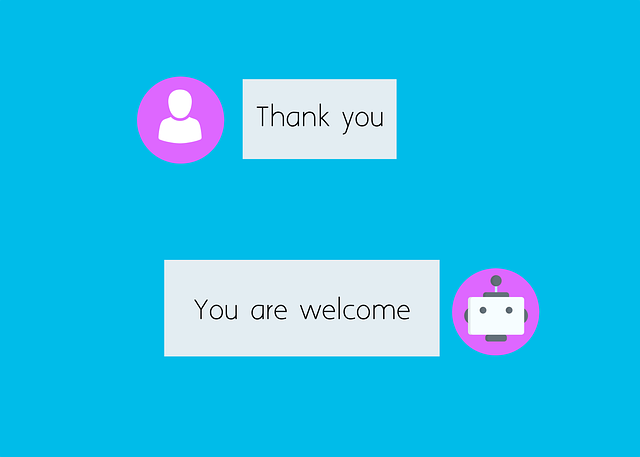AI chatbots and assistants are revolutionizing human-computer interaction by providing 24/7 personalized and efficient communication through advanced natural language processing (NLP). They streamline tasks in various sectors, from customer service to mental health support, enhancing user experiences and operational efficiency. While challenges like privacy and gaining user trust exist, the integration of AI chatbots and assistants across industries promises continuous innovation, improved workflows, and better business performance, reshaping the future of digital interactions.
conversational AI is rewriting the way we interact with technology. From AI chatbots that offer 24/7 support to intelligent assistants managing complex tasks, this evolving field is transforming how we communicate and engage with digital solutions. This article explores the rise of AI chatbots and AI assistants, their profound impact on ai customer service, and how they’re revolutionizing business operations across industries. We’ll also delve into the benefits and challenges of integrating AI into everyday interactions.
- The Rise of AI Chatbots: Shaping the Future of Communication
- AI Assistants: Redefining How We Interact with Technology
- Revolutionizing Customer Service with AI Chatbot Integration
- Benefits and Challenges: Implementing AI in Everyday Interactions
- The Impact on Industries: Transforming Business Operations
The Rise of AI Chatbots: Shaping the Future of Communication

The rise of AI chatbots is redefining the way we interact with technology, ushering in a new era of personalized and efficient communication. These intelligent virtual assistants leverage advanced natural language processing (NLP) to understand and respond to user queries contextually, much like human conversations. From providing 24/7 customer support to handling complex task management, AI chatbots are transforming how businesses engage their customers and optimize operations.
As AI technology continues to evolve, the capabilities of these chatbots are expanding rapidly. They can now assist with a wide range of tasks, from booking travel arrangements to offering mental health support. The integration of AI assistants into various sectors is not just a trend but a necessary step towards more intuitive and accessible digital interactions. This shift promises to enhance user experiences, streamline processes, and drive innovation in the way we interact with technology on a daily basis.
AI Assistants: Redefining How We Interact with Technology

AI chatbots and assistants are redefining how we interact with technology, transforming static tools into dynamic partners that understand and anticipate our needs. These intelligent systems leverage natural language processing (NLP) to engage in human-like conversations, making complex tasks simpler and more accessible. From asking for information to completing tasks like booking travel or managing schedules, AI assistants provide a personalized experience tailored to individual users.
In the realm of customer service, AI chatbots are revolutionizing support by offering 24/7 availability, instant responses, and consistent accuracy. They handle routine inquiries efficiently, freeing up human agents to focus on more complex issues that require empathy and nuanced understanding. This shift enhances customer satisfaction while optimizing operational costs for businesses.
Revolutionizing Customer Service with AI Chatbot Integration

In today’s digital era, businesses are rapidly embracing Conversational AI to transform technology interactions and elevate customer experiences. Among the most impactful applications is the integration of AI chatbots and assistants into customer service operations. These intelligent agents can handle a wide range of queries, from simple FAQs to complex issue resolution, all in natural language conversations. By leveraging machine learning algorithms, AI chatbots continuously learn and adapt, improving their accuracy and efficiency over time. This not only reduces response times but also ensures consistent, 24/7 availability for customer support, enhancing overall satisfaction.
Furthermore, AI assistants can personalize interactions by recalling customer history and preferences, fostering a sense of tailored service. They can offer proactive suggestions, cross-sell relevant products or services, and even escalate issues to human agents when needed. This multi-faceted approach revolutionizes traditional customer service models, making them more responsive, effective, and cost-efficient. As AI continues to evolve, its role in shaping the future of customer interactions is poised to become increasingly prominent.
Benefits and Challenges: Implementing AI in Everyday Interactions

Implementing AI in everyday interactions has brought about a myriad of benefits for businesses and users alike. AI chatbots and assistants are now capable of handling customer service inquiries, providing personalized recommendations, and even performing complex tasks. They offer round-the-clock availability, instant responses, and improved efficiency, enhancing user experiences significantly. Moreover, these technologies can learn from interactions, adapt to individual preferences, and continuously evolve, ensuring a dynamic and tailored approach.
Despite these advantages, challenges remain in integrating AI into everyday life. Privacy and security concerns are paramount, as sensitive data is often shared during interactions. Ensuring transparency and gaining user trust is essential for widespread adoption. Additionally, maintaining the human touch and empathy in AI-driven conversations is crucial, especially in customer service scenarios where emotional intelligence plays a vital role. Balancing automation with personalized engagement will be key to harnessing the full potential of conversational AI while addressing these challenges.
The Impact on Industries: Transforming Business Operations

Conversational AI, powered by AI chatbots and assistants, is revolutionizing how industries conduct their business operations. These advanced tools are designed to interact with customers naturally, providing support and solutions in real-time. By implementing AI customer service, companies can streamline processes, reduce response times, and enhance overall customer satisfaction. For example, in retail, an AI Assistant can guide shoppers through product selection, answer queries, and even process orders, all while learning from each interaction to improve future performances.
Moreover, conversational AI is transforming office dynamics by automating repetitive tasks traditionally handled by human resources departments. From scheduling meetings to managing basic employee inquiries, these digital assistants free up valuable time for HR professionals to focus on strategic initiatives. This not only improves efficiency but also contributes to a more positive work environment where employees can access information promptly, fostering increased productivity and job satisfaction.






